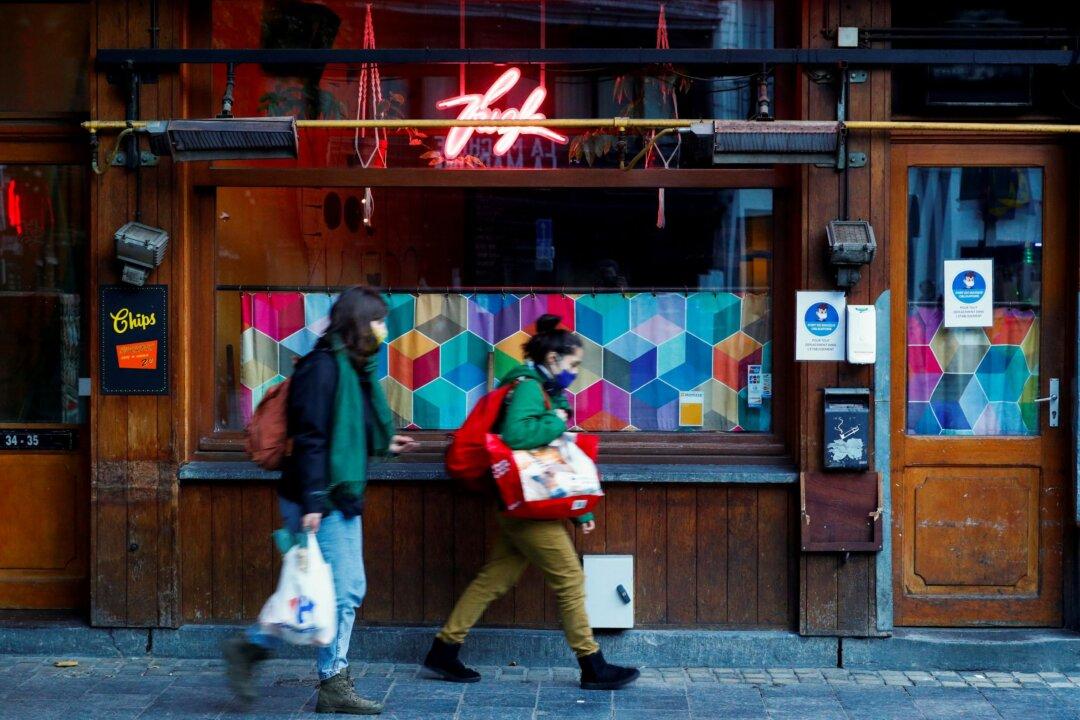BRUSSELS—Belgium will scrap COVID-19 restrictions on restaurants and cafes, allowing them to operate under their usual hours as part of the government’s reopening plan and as more than two-thirds of the population have been vaccinated.
But the measures, which will take effect on Sept. 1, will not apply to Brussels, home to the European Commission, the European Parliament, and NATO, because of the low vaccination rate in some parts of the city.





